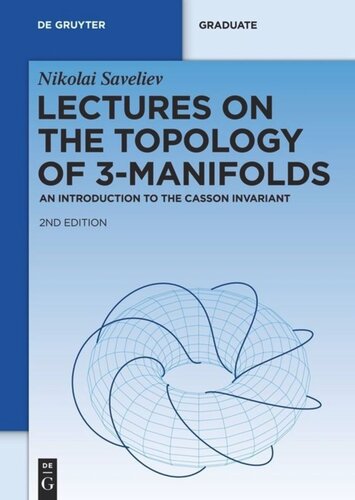

Most ebook files are in PDF format, so you can easily read them using various software such as Foxit Reader or directly on the Google Chrome browser.
Some ebook files are released by publishers in other formats such as .awz, .mobi, .epub, .fb2, etc. You may need to install specific software to read these formats on mobile/PC, such as Calibre.
Please read the tutorial at this link: https://ebookbell.com/faq
We offer FREE conversion to the popular formats you request; however, this may take some time. Therefore, right after payment, please email us, and we will try to provide the service as quickly as possible.
For some exceptional file formats or broken links (if any), please refrain from opening any disputes. Instead, email us first, and we will try to assist within a maximum of 6 hours.
EbookBell Team

4.4
12 reviewsProgress in low-dimensional topology has been very quick in the last three decades, leading to the solutions of many difficult problems. Among the earlier highlights of this period was Casson's λ-invariant that was instrumental in proving the vanishing of the Rohlin invariant of homotopy 3-spheres. The proof of the three-dimensional Poincaré conjecture has rendered this application moot but hardly made Casson's contribution less relevant: in fact, a lot of modern day topology, including a multitude of Floer homology theories, can be traced back to his λ-invariant.
The principal goal of this book, now in its second revised edition, remains providing an introduction to the low-dimensional topology and Casson's theory; it also reaches out, when appropriate, to more recent research topics. The book covers some classical material, such as Heegaard splittings, Dehn surgery, and invariants of knots and links. It then proceeds through the Kirby calculus and Rohlin's theorem to Casson's invariant and its applications, and concludes with a brief overview of recent developments.
The book will be accessible to graduate students in mathematics and theoretical physics familiar with some elementary algebraic and differential topology, including the fundamental group, basic homology theory, transversality, and Poincaré duality on manifolds.